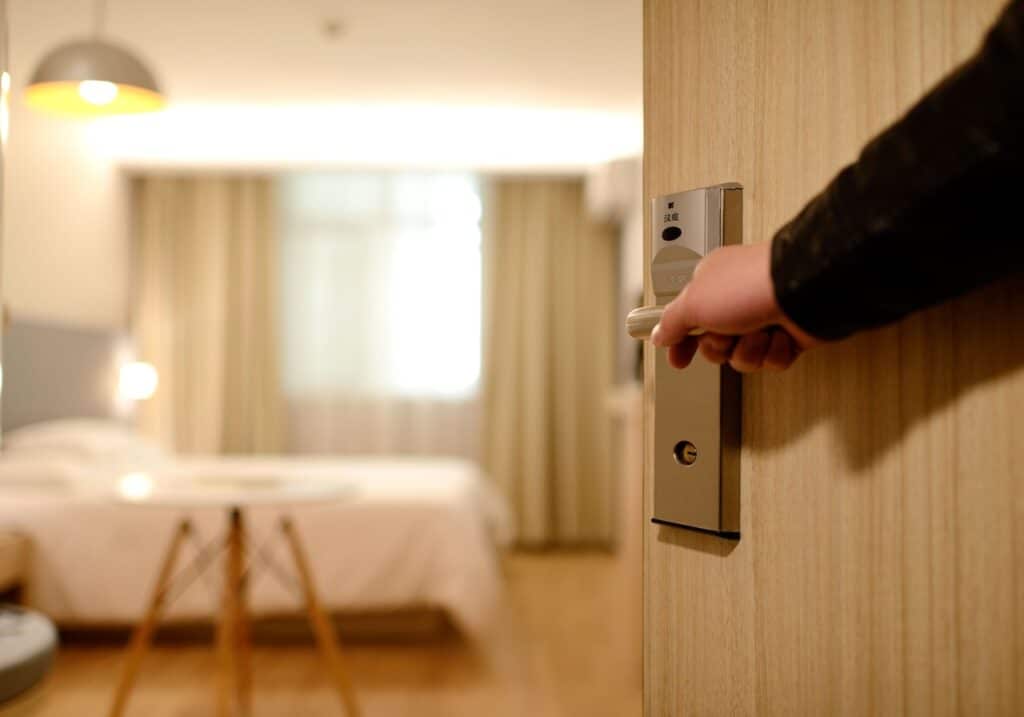The hospitality industry has always been at the forefront of adopting new technologies, and the rise of smart technology is no exception. Smart technology has drastically transformed various aspects of the hotel industry, from check-in to room service and even marketing. Let’s take a closer look at how smart technology is transforming the hotel industry.
Smart Check-In
Smart technology has revolutionized the check-in process, making it more seamless and convenient for guests. With online check-in, guests can bypass the traditional front desk and use their smartphones to check in and even select their rooms. This technology saves guests time and reduces the workload of hotel staff, allowing them to focus on more pressing tasks.
Personalized Guest Experience
Smart technology allows hotels to offer a more personalized guest experience. By utilizing data analytics, hotels can understand their guests’ preferences and offer tailored services accordingly. For example, if a hotel guest frequently orders room service, the hotel can use this information to recommend similar food options during their next stay. Additionally, smart technology can be used to provide guests with recommendations on local attractions, restaurants, and other activities based on their interests.
Smart Room Features
Smart technology has transformed the traditional hotel room. Smart thermostats, lighting, and entertainment systems are now commonplace in many hotels. Guests can control these features using voice commands or an app on their smartphone. This not only enhances the hotel guest experience but also helps hotels save energy by automatically adjusting room settings when guests are not present.
Contactless Services
The COVID-19 pandemic has accelerated the adoption of contactless services in the hotel industry. Hotels are now using smart technology to offer guests contactless check-in and check-out, room service, and housekeeping services. Guests can make requests using their smartphones, and hotel staff will receive notifications on their devices. This not only reduces the risk of infection but also provides a more convenient experience for guests.
Smart Marketing
Smart technology has also transformed the way hotels market their services. Hotels can now use social media platforms, email marketing, and other digital channels to reach potential guests. By using data analytics, hotels can target specific audiences based on their interests, demographics, and behavior. This allows hotels to reach their target audience more effectively and generate more bookings.
Smart Security
Smart technology has also improved hotel security. With the integration of smart locks, hotels can provide guests with a unique digital key that they can use to unlock their rooms using their smartphones. This eliminates the need for traditional room keys, which can be lost or stolen, and provides guests with a more secure and convenient experience.
Smart Energy Management
Smart technology has also helped hotels save energy by optimizing their energy consumption. Smart thermostats and lighting systems can adjust room settings automatically based on occupancy, time of day, and other factors. This not only reduces energy waste but also saves hotels money on their energy bills.
Final Thoughts
Smart technology has transformed the hotel industry in many ways. From seamless check-in to personalized guest services, smart technology has enhanced the guest experience and streamlined hotel operations. The adoption of contactless services has also helped hotels mitigate the risk of infection during the COVID-19 pandemic. As smart technology continues to evolve, we can expect to see even more innovative solutions in the hotel industry in the years to come.
Improve the guest experience with the help of Globeo. We provide the best corporate lodging solutions at the best rates. Our online booking portal gives you an overview of all your travelers and travel cost exposure so you can stay on top of your hotel expenses at any time. Request a free demo now!



